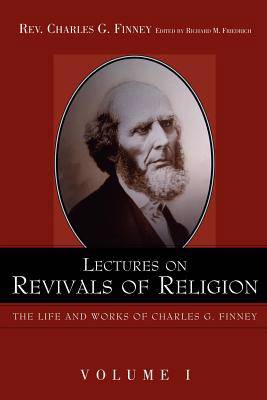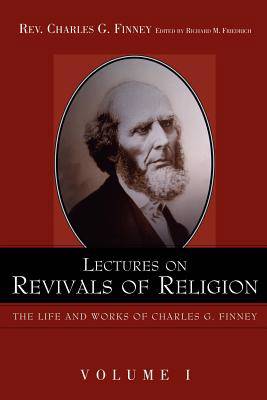
- Retrait gratuit dans votre magasin Club
- 7.000.000 titres dans notre catalogue
- Payer en toute sécurité
- Toujours un magasin près de chez vous
- Retrait gratuit dans votre magasin Club
- 7.000.0000 titres dans notre catalogue
- Payer en toute sécurité
- Toujours un magasin près de chez vous
Description
When editors have been changing Finney's words in their republications of his works over the last one hundred and thirty years, it is essential in understanding the man and his success that republications without changes be given once again to the public. This new edition does that. While the text is from the final 1868 revised edition, numerous footnotes are added that show the changes Finney made from the original 1834 and 1835 editions of these lectures. Many of the changes made in more recent republications are also noticed. From Finney's Preface: In revising [these lectures] for a new edition, I have done little more than correct the phraseology in a few instances, add a few footnotes, and replace the last two Lectures by newly-written ones on the same texts and prepared especially for this edition. . . These Lectures have been translated in the Welsh and French languages, and have been extensively circulated wherever the English or either of those languages is understood. One house in London published 80,000 copies in English. They are still in type and in market in Europe, and I have the great satisfaction of knowing that they have been made a great blessing to thousands of souls. Consequently, I have not thought it wise to recast them for the sake of giving them a more attractive form. God has owned and blessed the reading of them as they have been, and with the exceptions above noticed, I have given them to the present and coming generations. If the reader will peruse and remember the foregoing preface, he will understand what I said of the church and some of the ministers, and why I said it. I beseech my brethren not to take amiss what I have said, but rather to be assured that every sentence has been spoken in love, and often with a sorrowful heart. May God continue to add His blessing to the reading of these Lectures. CHARLES G. FINNEY (1792-1875) was America's foremost evangelist. Over half a million people were soundly converted under his personal ministry in a day when there was no TV or microphones. He was also an excellent theologian, philosopher, educator, pastor and reformer while professor of theology and president of Oberlin College. Harvard's Perry Miller said, "Finney led America out of the eighteenth century." He is remembered, according to Harvard's W. G. McLoughlin, for his "textbook on how to promote revivals of religion. This book is the perennial classic to which all succeeding generations of revivalists have turned for authority and inspiration." He was also a father to the evangelical and holiness movements.
Spécifications
Parties prenantes
- Auteur(s) :
- Editeur:
Contenu
- Nombre de pages :
- 484
- Langue:
- Anglais
- Collection :
Caractéristiques
- EAN:
- 9781932370478
- Date de parution :
- 04-03-05
- Format:
- Livre broché
- Format numérique:
- Trade paperback (VS)
- Dimensions :
- 148 mm x 228 mm
- Poids :
- 693 g

Les avis
Nous publions uniquement les avis qui respectent les conditions requises. Consultez nos conditions pour les avis.






